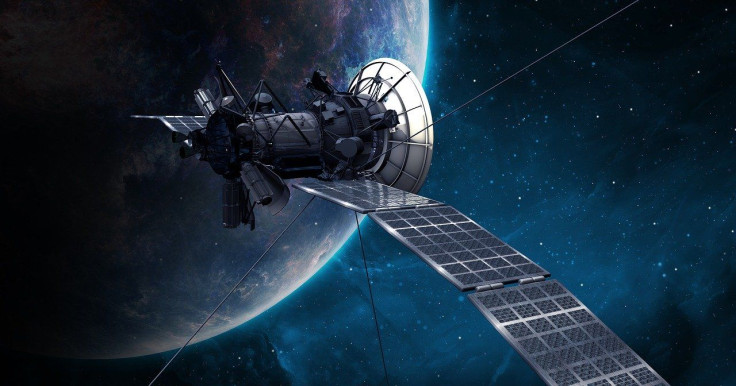Mysterious Russian Spacecraft Stalking US Spy Satellite, Space Force Expresses Concern

KEY POINTS
- Two Russian satellites appear to be spying on an American spy satellite
- Space Force chief of operations Gen. John Raymond confirmed the reports
- Gen. Raymond said the satellites have the 'characteristics of a weapon'
- He called out Russia for developing technologies that can harm U.S. systems in space
The U.S. Space Force confirmed recent reports of two Russian spacecrafts that seem to be tailing a U.S. spy satellite closely. In a statement Monday (Feb. 10), General John Raymond said the satellites exhibited the “characteristics of a weapon.”
Russian ‘Inspector’ Satellites
Last November, the Russian government launched an “inspector satellite” and, on Dec. 6, it released a sub-satellite in orbit. The Russian satellites were not initially close to the National Reconnaissance Office’s (NRO) USA 245 satellite. However, just two weeks after they were launched, amateur spacecraft tracker Michael Thompson noticed that one of the satellites, Kosmos 2542, performed a series of maneuvers that brought it closer to USA 245.
By mid-January, both spacecrafts had moved as close as 300 kilometers from the American spacecraft in orbits that allowed them to have multiple views of it.
Gen. John Raymond confirmed the reports, saying that the “unusual and disturbing behavior” could create a potentially dangerous situation in space. “The United States finds these recent activities to be concerning and do not reflect the behavior of a responsible spacefaring nation,” he said.
Spying On A Spy Satellite
As it happens, USA 245 is itself a spy satellite under the NRO, an American military agency that specializes in surveillance and operates multiple classified satellites that are believed to spy on various locations across the planet. The NRO is one of the five major U.S. intelligence agencies under the Department of Defense.
Having the satellite of another country close to a spy satellite is enough of a cause of concern, but Gen. Raymond also noted in his statement to the media that the satellites exhibited signs of being a weapon, saying one of them fired a "high-speed projectile into space." He also called out Russia for developing technologies that could potentially harm Americain space systems.
The Defense Department has also previously expressed its concern over the possibility of satellites deliberately ramming other satellites or perhaps shooting them down with lasers or by spraying with harmful chemicals.
Given the situation, the Space Force's concern lies not only with the fact that Kosmos 2542 and Kosmos 2543 seem to be spying on a particularly sensitive American spacecraft, but also with the possibility that the Russian satellite has the potential to physically harm the U.S. satellite.
So far, there is no protocol on what should be done when a nation's satellite gets too close to another nation's satellite.
© Copyright IBTimes 2025. All rights reserved.






















